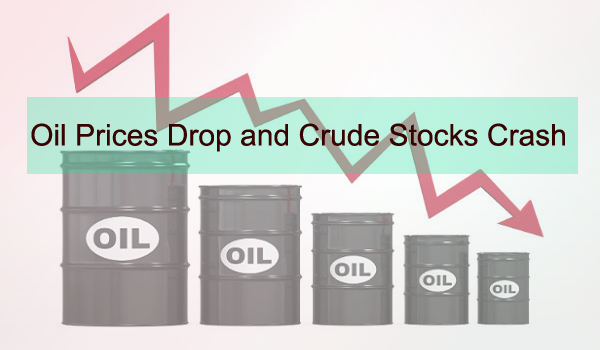Thursday’s oil prices dropped Friday on profit-taking. After earlier reaching a two-week high of $50.14 a barrel, London Brent crude for November delivery 4.2% up Thursday at $49.99.
It dropped 58 cents Friday to $49.41 a barrel by 0647 GMT. NYMEX crude for October delivery settled up 4.7% Thursday then dropped 51 cents to $47.11 Friday.
This followed a surprising large drawdown in U.S. crude stocks. The supply and demand balance was upset by Tropical Storm Hermine battering the east coast. Cargo offloading was delayed in Texas and Louisiana. However, the storm also caused a drop in vehicular traffic which contributed to the price dropping again.

Last week, U.S. stocks of crude oil dropped to 511.4 million barrels. This is a big drop of 14.5 million barrels. According to government data, this is the largest weekly drop for over 17 years. January 1999 was the largest drop in oil stocks prior to last week.
U.S. Gulf Coast imports fell to 2.5 million barrels power day. This is the lowest daily figure since 1990 when data collection began. As explained earlier, Tropical Storm Hermine was the primary cause of this. It is believed that crude stocks will increase very quickly next week as tankers offload their cargo. The current draw-down is regarded as a one-off situation that will shortly be redressed.
Gasoline futures had risen by over 5% but fell by almost 1% Friday as the situation became clearer.
Output in general is higher than hoped for. OPEC production is already at rates that were not expected for another two years. Russian oil is averaging close to 11 million barrels/day, an increase over August’s average of 10.71 million barrels/day.
OPEC producers, along with non-OPEC countries including Russia, will be discussing the oil situation at a meeting in Algeria September 26-28. Russia and Saudi Arabia have already agreed to help stabilize the oil supply situation. However, the oil options market indicates that traders are not hopeful of an agreement on controlling output to be reached soon.